Ovulation is one of the most commonly-discussed concepts involved in female fertility.
As a woman, speaking about your ovulation goes hand in hand with your monthly period. Often times, women tend to focus more on their monthly flow than how well they do for ovulation. However, both are of high importance to achieve pregnancy.
In this article, you will get to understand what ovulation is, the importance of ovulation, signs of ovulation, how to know your fertile days, how pregnancy occurs, and the best remedy to boost your ovulation in respect to how it speaks about your fertility.
Let’s start with Ovulation basis, shall we?
What is Ovulation?
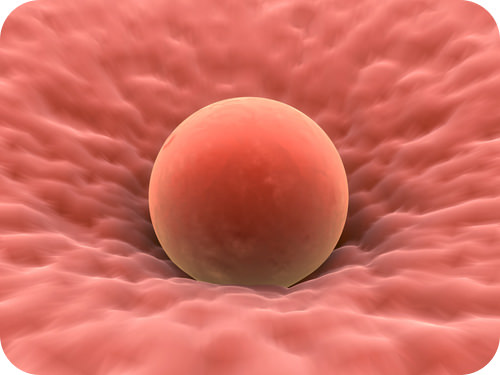
Ovulation is a phase in the menstrual cycle. It is the release of the mature egg (ovum) from a woman’s ovary which occurs at about day 14 of a 28-day menstrual cycle.
The egg then moves through the fallopian tube where it can be fertilized. If sperm cells are in the fallopian tube when the egg is released, there is a good chance that the egg will be fertilized and pregnancy will take place.
As the egg is traveling through the fallopian tube, the level of progesterone, a female reproductive hormone, rises, which helps prepare the uterine lining for pregnancy.
How does Ovulation Happen?
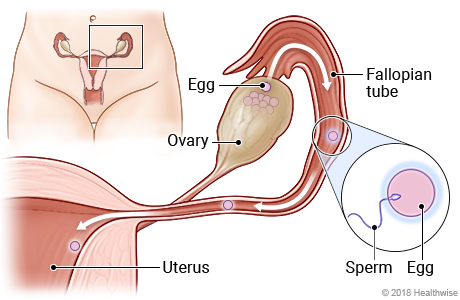
Each month, between days 6 and 14 of the menstrual cycle, follicle-stimulating hormone (FSH) causes follicles in one of a woman’s ovaries to begin to mature.
However, during days 10 to 14, only one of the developing follicles forms a fully mature egg. At about day 14 in the menstrual cycle, a sudden surge in luteinizing hormone causes the ovary to release its egg.
The release of the mature egg is called ovulation.
But what if a woman does not ovulate? Can she get pregnant? Find out!
Do Women Have to Be Ovulating to Conceive?
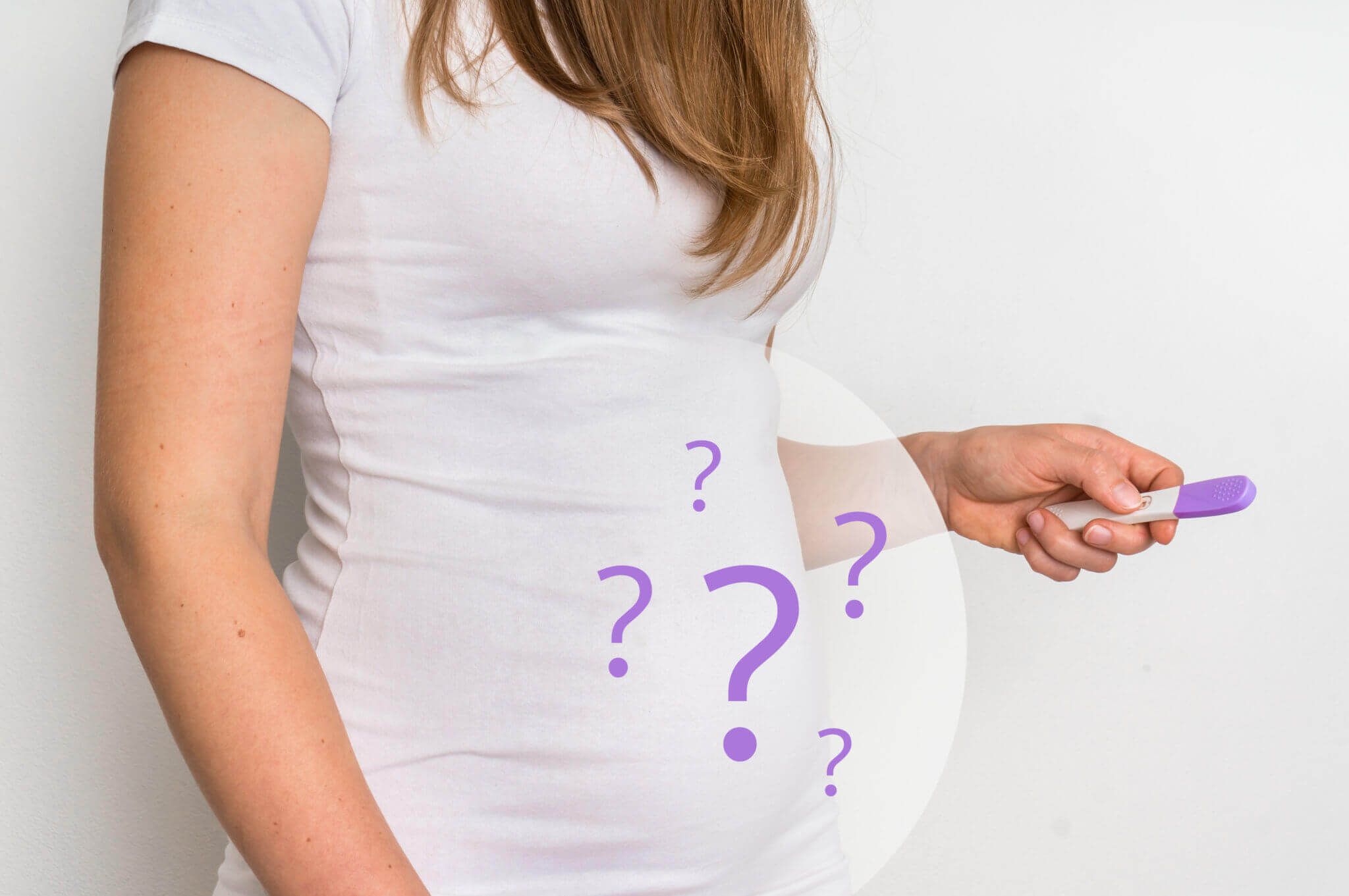
Yes, you need to ovulate in order to get pregnant, from the understanding of ovulation above , which implies the release of an egg from ovary, if an egg is not released, then fertilization cannot occur.
Healthy women with a regular menstrual cycle generally ovulate once a month. You can get pregnant if you have intercourse 5 days before ovulation and 1 day after ovulation. This is because a man’s sperm can survive in the female birth canal for up to 5 days.
Many women ask if they can get pregnant if they are fertile but not ovulating. Unfortunately, a woman can’t get pregnant if she is not ovulating. If you are fertile, it means that you will be able to produce eggs, but you can only get pregnant if you have intercourse during the time when you are ovulating.
Specifically, you can’t get pregnant if you are not ovulating because there is no egg for the sperm to fertilize.
What are the Most Fertile Days?

A woman is most fertile while ovulating. The fertile window of a woman depends on the length of her menstrual cycle, which varies among women.
Out of these, 3 days are right before ovulation, 1 on the day of ovulation, and 1 day after ovulation. These days are the most fertile as sperm can stay alive in a woman’s birth canal for up to 5 days and the egg deteriorates between 24 to 48 hours after ovulation.
Thus, the most fertile days can be calculated based on cycle length.
What is Ovulation Calculator and how does it Help to Conceive?
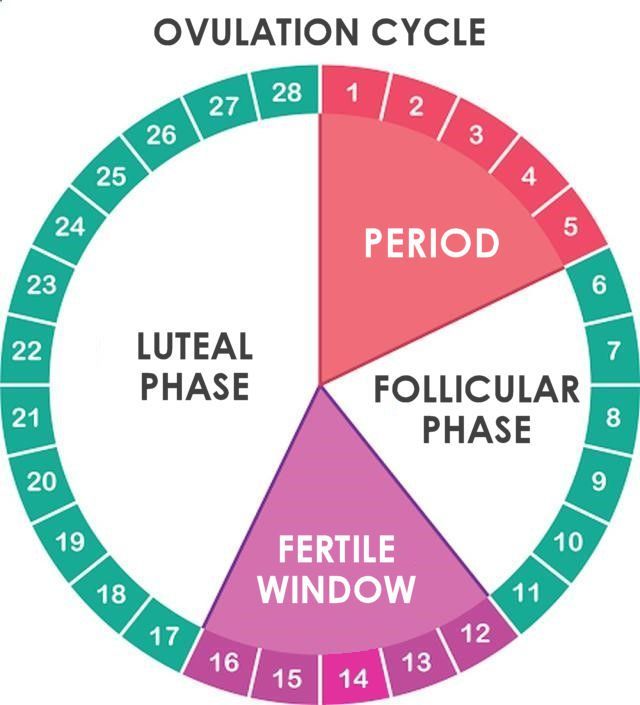
This ovulation calculator or ovulation calendar can help you work out your most fertile time. These are the days you are most likely to get pregnant.
It can also estimate your due date if you do become pregnant during your next fertile days.
Others ways to help you work out when you’re ovulating:
· Notice Changes in Vaginal Mucus
A few days before ovulation, you may notice your vaginal mucus becomes clear, slick and slippery, and feels a bit like egg white.
This is a sign that ovulation is about to happen. It’s the best time to have sex, as sperm travel more easily in this kind of mucus
· Use an Ovulation Predictor Kit
You can use a predictor kit from a supermarket or pharmacy, to test your urine for signs of ovulation. If you start testing your urine a few days before the day you next expect to ovulate, a positive result means you are going to ovulate within the next 24 to 36 hours (one to two days).
What are the Signs of Ovulation?
It’s relative to predict exactly when you’re ovulating because the length of your cycles can vary from month to month. Even if your menstrual cycles are the same length, you may not always ovulate on the same day.
Some prominent signs of ovulation are mentioned below:
- Changes in the consistency of cervical mucus are a significant sign of ovulation. The cervical mucus turns thick and transparent and looks very similar to egg whites at the time of ovulation.
- At the time of ovulation, you will also notice changes in your cervix. Your cervix will feel wet and soft at the time of ovulation.
However, this can be detected accurately by women only after following and examining their cervix for several menstrual cycles.
Some women also experience other signs during ovulation, such as;
- Increase in libido
- mild pain, or cramps on one side of the pelvic area
- Bloated abdomen
- Spotting
- An increase in sense of smell, taste, or vision
- Fertile Cervical Mucus.
- Increased Sexual Desire.
- Basal Body Temperature Increase.
- Change in Cervical Position.
- Breast Tenderness.
- Ovulation Pain.
Knowing when you ovulate can help you plan for sex at the right time and improve your chance of getting pregnant. You can keep track of your menstrual cycles on a chart, in a diary, or on a free period-tracker app on your smartphone.
To work out the length of your menstrual cycle, record the first day you start bleeding (first day of your period). This is day 1. The last day of your cycle is the day before your next period begins.
Menstruation Vs Ovulation

Ovulation occurs when an egg is released from ovary. It usually happens about 10 to 16 days before your menstruation starts.
Menstruation on the other hand, or what is commonly referred to as your period, is the bleeding that occurs after ovulation, if egg released during ovulation is not fertilized.
Natural Remedy to Boost your Ovulation

You can join the league of fertile women today with our natural remedy to achieve regular ovulation and increase your chances of conception.
Introducing;
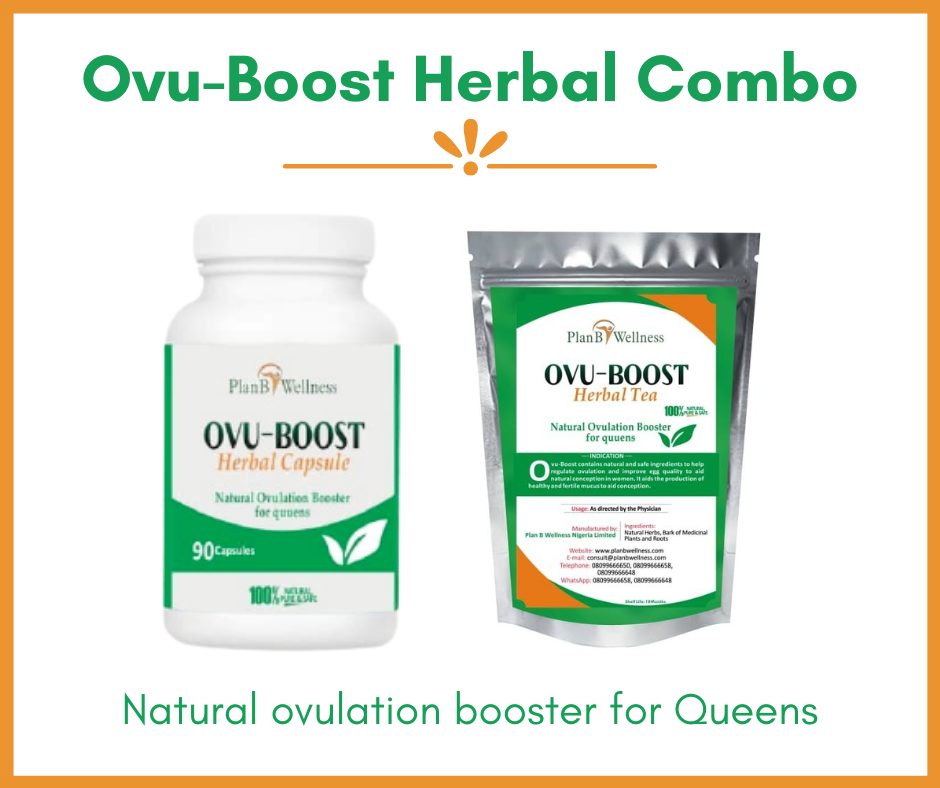
With our natural remedy to improve your ovulation, you have higher chances of improving your fertility and conception as well. Give whichever one of them that suites you a trial and see the miracle that follows.
Click here for success stories and reviews from mothers that have use the natural ovulation booster
Talk to us to see how we can be of help.
Do not forget to share this write-up with as many women as possible to also benefit.
Stay healthy and never give up!
Plan B Wellness Nigeria Limited
WhatsApp, Call, SMS: +2348099666658, +2348099666648
Call and SMS only: +2348099666650
Email: consult@planbwellness.com
IG: @planbwellness
Twitter: @planbwellness

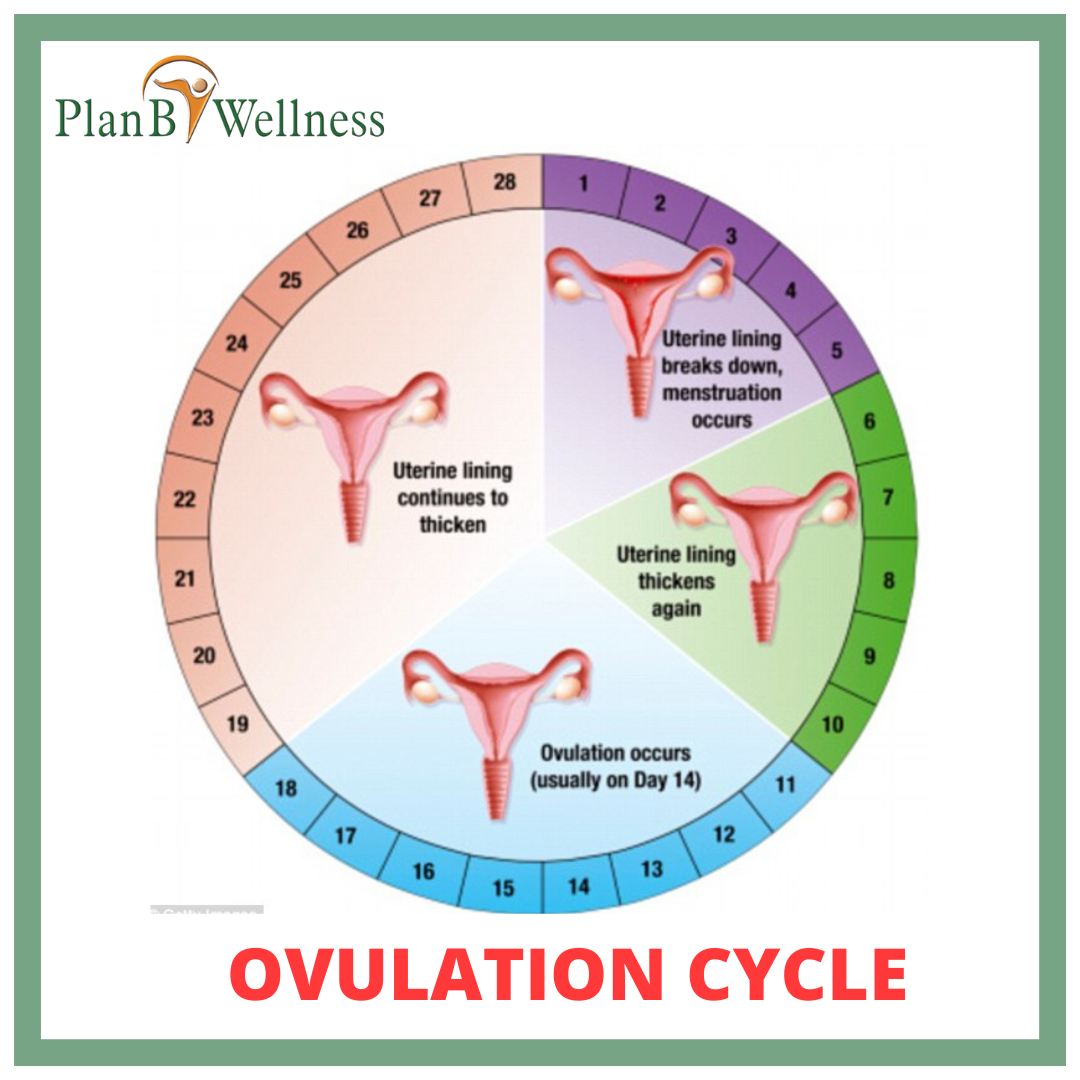

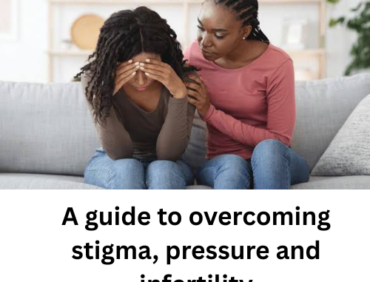


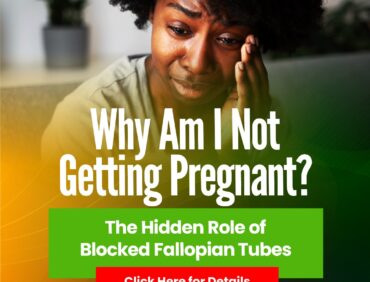
[…] Pain during ovulation […]